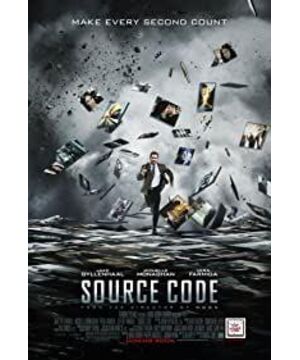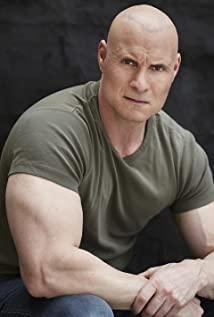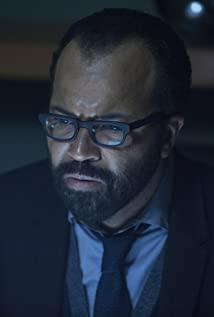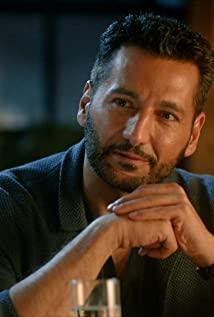This old work is my second review. I remember that the director "Duncan Jones" mentioned in the behind-the-scenes special that if this film allows people to walk out of the theater, they can also rethink life, and there will be a moment due to the plot in the play. If you are moved, it will be his biggest gain from making this film. "Source Code" is one of the only two movies directed by the director so far. He fully expresses his ideas about the development of modern technology in his works. The most admirable is that he can launch in those complicated data and formats. A set of insights on the necessary balance between human nature and technology. In addition, when expressing the subject matter of temporal and spatial switching, the most important thing is rationality, but since we are still unable to prove its feasibility, we can only rely on the rules set by the film to follow the rationality. The regulations of "Source Code" are: "Parallel Theory" and "Remaining Memory".
The conflict between "moral salvation" and "survival of human nature" discussed in the film is the director's best play. In the modern age of rapid technological advancement, the importance of human emotions should not be obliterated by the pull of interests and science. ... So in "Source Code", the greed of human beings is satirized indefinitely; the selfishness of the human heart is forced to nowhere to hide, until Duncan Jones brings out the warmth of humanity to redeem the ugliness hidden in the busy city. Under the seemingly complicated but simple structure of the script, through the execution of the "source code" plan, Captain Stephens' consciousness can enter the memory of a passenger on the bombing train, Sean, the time limit of the "source code" For eight minutes, the mission objective is to find the bomber who installed the bomb. If the mission fails, the "source code" is restarted, and Captain Stephens must perform the mission again. If it fails in the second wave of the bomber in the "real world" Find out the bomber before the attack, all efforts will be in vain. "Source Code" presents humanity in a true and unobtrusive manner through the opposition between reality and "parallel space". From the tightly interlocking plot, the film depicts deep and rich levels. The science-related links that director Duncan Jones threw to the audience in "Source Code" can actually be interpreted as complicated and profound, but he does not intend to be too constrained with these horny technological elements, and more is presented in The feelings of compassion, the strong contrast between interests and human nature, the collision and pull of black and white, which have been produced under many experiences, and even lament the greed and calculations of the class system in modern society, these heavens and humans in the deep heart The rules of engagement and life form the basic structure of "Source Code", and the most important and core value and message of the whole film is "cherish the present." "If you only have one minute left to live, what would you do?" This is the question that Captain Stephens has asked the heroine several times. I believe it is also what most people would ask about disasters such as the end of the world. Regardless of whether there are contradictions and fallacies in the theories discussed in the film, you can get very good answers in the film.
Technology has packaged "Source Code", trains have covered thousands of lives, and cabins have imprisoned Stephens. However, this sentence is an unforgettable statement that no matter how cold the steel is, it cannot be cooled; humans should indeed learn to cherish, not as Stephens did. I regretted the last conversation with my father before his death. Fortunately, "Source Code" gave Stephens "one more chance", and also gave the humans who are always so lofty to take the lesson of "cherishing" again. The screen stoppage is the most Great teaching materials, no need for more annotations to explain the beauty and importance of cherishing life. "Source Code" contains quite strong complex emotions. The stacking of Stevens’s stories and characters on the script is quite dramatic. Through Jack Glennho’s interpretation, this tragic character is more three-dimensional and true. After Captain Stephens became the experimental object of the "Source Code Project" involuntarily, on the one hand, he continued to accept "death", on the other hand, he gradually found out the bombs and the killer, and was agitated outside the specifications of the experiment designer. Aroused his compassion, trying to reverse the final result.
What's moving in the film is not only the setting of the story background of Captain Stephens on the script, but also every little action of Jack Glennho, from ignorance to death, and every expression and behavior can be felt by Jack Ge Renho, the actor's powerful acting skills, and those Captain Stephens's incompetence and paranoia, under Jack Glennho's performance, how can the audience not cry for him? Although Captain Stephens’s situation is not very close to reality, it is a situation that is difficult to empathize with, but we can still understand that Captain Stephens’s last request to the besieged city is his only way to find spiritual salvation and a glorious parting. . Captain Stephens’ request extends the two most important messages. One is to express the eternal importance of the present through the kiss between Captain Stephens and the female passenger Christina and the call with his father. The other is The use of Gu Wen's unauthorized actions to create a confrontation between two human personalities also shows that the warmth of human nature is a trace that cannot be erased regardless of any technology or interest. In addition, Duncan Jones also sighed for the low- and middle-class people who dedicate their lives to their allegiance to the country but are buried by status and currency.
Quantum mechanics, parabolic calculus, space-time continuum, parallel universe.. Just looking at the script of "Source Code", you can understand that this story definitely has the potential to be filmed into a huge commercial masterpiece such as "Inception", but Duncan Jones Through simple scenes to highlight the multiple interactions and influences of human nature and technology, it is not only Duncan Jones who once again handed over an excellent report card, but also Jack Glennhoo successfully lifted each of them with his own power in the movie. The rhythm of the transition, especially the plot of the phone call with his father at the end of the film, the emotional control is quite accurate, fully showing his gloomy and intelligent general style, successfully adding another classic to his acting career. Although the ending of "Source Code" obviously seriously violated the original structure of the film, the excellent performance in all aspects of the film still proves that "Source Code" is a very good low-cost movie.
View more about Source Code reviews











